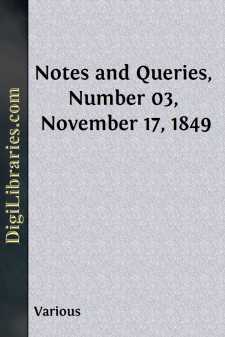Categories
- Antiques & Collectibles 13
- Architecture 36
- Art 48
- Bibles 22
- Biography & Autobiography 816
- Body, Mind & Spirit 145
- Business & Economics 28
- Children's Books 17
- Children's Fiction 14
- Computers 4
- Cooking 94
- Crafts & Hobbies 4
- Drama 346
- Education 58
- Family & Relationships 59
- Fiction 11834
- Foreign Language Study 3
- Games 19
- Gardening 17
- Health & Fitness 34
- History 1378
- House & Home 1
- Humor 147
- Juvenile Fiction 1873
- Juvenile Nonfiction 202
- Language Arts & Disciplines 89
- Law 16
- Literary Collections 686
- Literary Criticism 179
- Mathematics 13
- Medical 41
- Music 40
- Nature 179
- Non-Classifiable 1768
- Performing Arts 7
- Periodicals 1453
- Philosophy 66
- Photography 2
- Poetry 897
- Political Science 203
- Psychology 45
- Reference 154
- Religion 516
- Science 126
- Self-Help 85
- Social Science 82
- Sports & Recreation 34
- Study Aids 3
- Technology & Engineering 59
- Transportation 23
- Travel 463
- True Crime 29
Our website is made possible by displaying online advertisements to our visitors.
Please consider supporting us by disabling your ad blocker.
Notes and Queries, Number 03, November 17, 1849
by: Various
Categories:
Description:
Excerpt
TRAVELLING IN ENGLAND.
I suppose that the history of travelling in this country, from the Creation to the present time, may be divided into four periods—those of no coaches, slow coaches, fast coaches, railways. Whether balloons, or rockets, or some new mode which as yet has no name, because it has no existence, may come next, I cannot tell, and it is hardly worth while to think about it; for, no doubt, it will be something quite inconceivable.
The third, or fast-coach period was brief, though brilliant. I doubt whether fifty years have elapsed since the newest news in the world of locomotive fashion was, that—to the utter confusion and defacement of the "Sick, Lame, and Lazy," a sober vehicle so called from the nature of its cargo, which was nightly disbanded into comfortable beds at Newbury—a new post-coach had been set up which performed the journey to Bath in a single day. Perhaps the day extended from about five o'clock in the morning to midnight, but still the coach was, as it called itself, a "Day-coach," for it travelled all day; and if it did somewhat "add the night unto the day, and so make up the measure," the passengers had all the more for their money, and were incomparably better off as to time than they had ever been before. But after this many years elapsed before "old Quicksilver" made good its ten miles an hour in one unbroken trot to Exeter, and was rivalled by "young Quicksilver" on the road to Bristol, and beaten by the light-winged Hirondelle, that flew from Liverpool to Cheltenham, and troops of others, each faster than the foregoing, each trumpeting its own fame on its own improved bugle, and beating time (all to nothing) with sixteen hoofs of invisible swiftness. How they would have stared if a parliamentary train had passed them, especially if they could have heard its inmates grumbling over their slow progress, and declaring that it would be almost quicker to get out and walk whenever their jealousy was roused by the sudden flash of an express.
Certainly I was among those who rejoiced in the increased expedition of the fast-coach period; not because I loved, but because I hated, travelling, and was glad to have periods of misery abridged. I used to listen with delight to the stories of my seniors, and to marvel that in so short a space of time so great an improvement had been made. One friend told me that in earlier life he had travelled from Gloucester to Hereford in a coach, which performed the journey of about thirty miles between the hours of five in the morning and seven in the evening. I took it for granted that they stopped on the road to dine, and spent a long afternoon in smoking, napping, or playing at bowls. But he would not acknowledge anything of the kind, and the impression on his mind was that they kept going (such going as it was), except during the time necessarily expended in baiting the horses, who, I think, were not changed—unless indeed it were from bad to worse by fatigue. Another friend, a physician at Sheffield, told me that one of the first times (perhaps he may have said, the first) that a coach started for London, he was a passenger....












